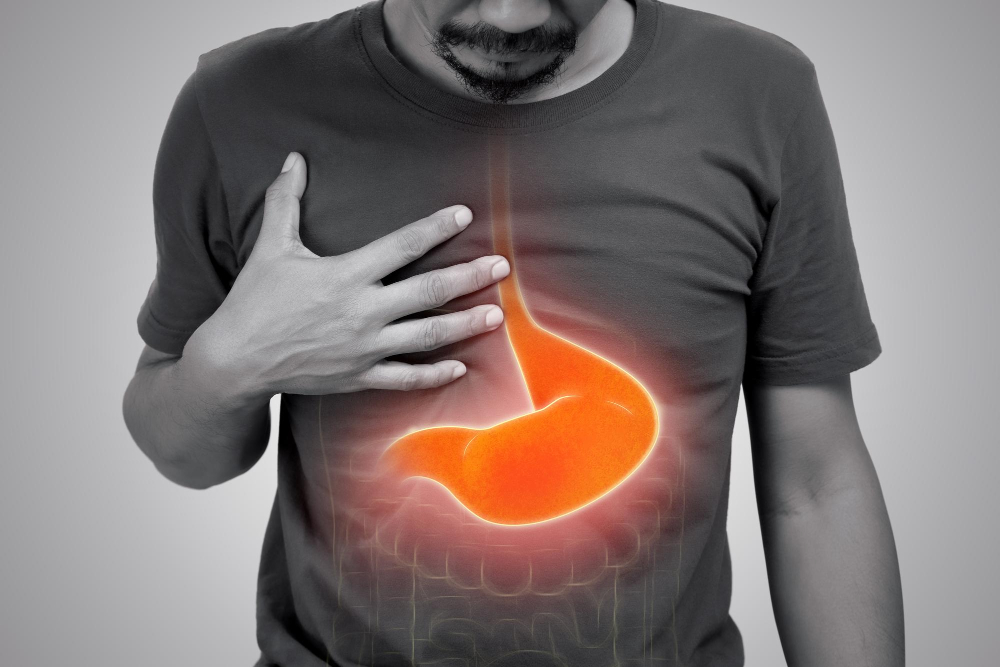You have a burning sensation in your chest after dinner. The discomfort grows when you lie down. You panic and suspect a heart attack. However, these symptoms point to heartburn. This occurs when stomach acids travel backward into the oesophagus, causing a burning sensation in the chest. Antacids and acid reducer medicines can effectively alleviate heartburn symptoms.
Antacids and Acid Reducers
Antacids are drugs that neutralise stomach acid, whereas acid reducers are drugs that inhibit stomach acid production. Over-the-counter drugs that do not require a doctor’s prescription can be used to relieve heartburn. These drugs contain antacids, which neutralise the acids in the stomach that cause heartburn. These antacids only provide temporary relief. H2 blocker medication provides relief from heartburn symptoms for a longer period of time than antacids. They function by lowering stomach acid and take effect within an hour of consumption. Famotidine (Pepcid) and ranitidine (Zantac) are two examples of over-the-counter H2 blockers.
Proton pump inhibitor drugs are the best choice for patients who have heartburn more than two days per week. Proton pump inhibitors like Omeprazole (Prilosec) come to the rescue for heartburn that isn’t relieved by H2 blockers or antacids. They work by drastically reducing acid production in the stomach. Proton pump inhibitors provide longer-lasting relief than other drugs, but they take longer to work.
Side effects
Side effects are to be expected when taking an antacid for an extended period of time, in large doses, or in people with kidney problems. Aluminium-containing antacids cause severe constipation, a constant sensation of pain, loss of appetite, mood changes, weight loss, muscle weakness, and swelling of the ankles and wrists.
Antacids containing magnesium may cause dizziness, difficulty urinating, an irregular heartbeat, weakness, mood changes, a loss of appetite, and a sense of discomfort. Some antacids contain sodium bicarbonate, which can cause nausea, vomiting, sluggish breathing, muscle pain with twitching, a constant headache, and an urge to urinate frequently.
Cramping in the stomach, white-coloured stools, mild constipation, or severe diarrhoea are less common adverse effects. Nausea, headaches, diarrhoea, and constipation are the most common side effects of acid reducers. It has been observed that taking proton pump inhibitors increases the risk of bone fractures.
Indications and contraindications
Antacids are used to treat peptic ulcers, duodenal ulcers, indigestion, heartburn, gas, gastroesophageal reflux, and pregnancy-related reflux. Antacids are combined with acid reducers such as H2 blockers. They are also used to treat gastric reflux symptoms on a long-term basis.
Antacids and acid reducers are not recommended for patients who have kidney or liver disease or who are allergic to drugs containing aluminium, simethicone, or magnesium. Antacids containing aluminium hydroxide, calcium carbonate, or magnesium carbonate should be avoided by patients with kidney disease. Take no more than one acid reducer or antacid at a time. If you are pregnant or breastfeeding, you should check with your doctor before using any antacids.
Interactions with other drugs
Antacids’ effectiveness is lowered when they are used with certain medications. For instance, the absorption of fluconazole, a fungicide, is hampered when an antacid is consumed. To avoid the absorption of drugs being affected, take antacid one hour after taking your other prescribed medications and ideally after meals, which boosts the efficacy of antacid.
Reading the drug label
Once a product is on the market, the Food and Drug Administration (FDA) oversees its safety. The FDA-provided drug label on the bottle carrying the medication provides detailed information about the drug. The drug label contains information about the active ingredient in the medication, its uses, warnings about the interaction of antacids with other drugs, directions for use, information about the medication’s storage temperature, inactive ingredients, and supplement facts. Before purchasing any over-the-counter antacid or acid reducer, it is critical that you thoroughly read the drug label.
Calling your doctor
If you have heartburn almost twice a week, have difficulty swallowing, or the symptoms of heartburn persist even after taking over-the-counter drugs, you should consult your doctor without delay. If you have severe chest pain along with symptoms such as arm discomfort, jaw pain, and breathing difficulties, you may be experiencing a heart attack rather than just heartburn.




